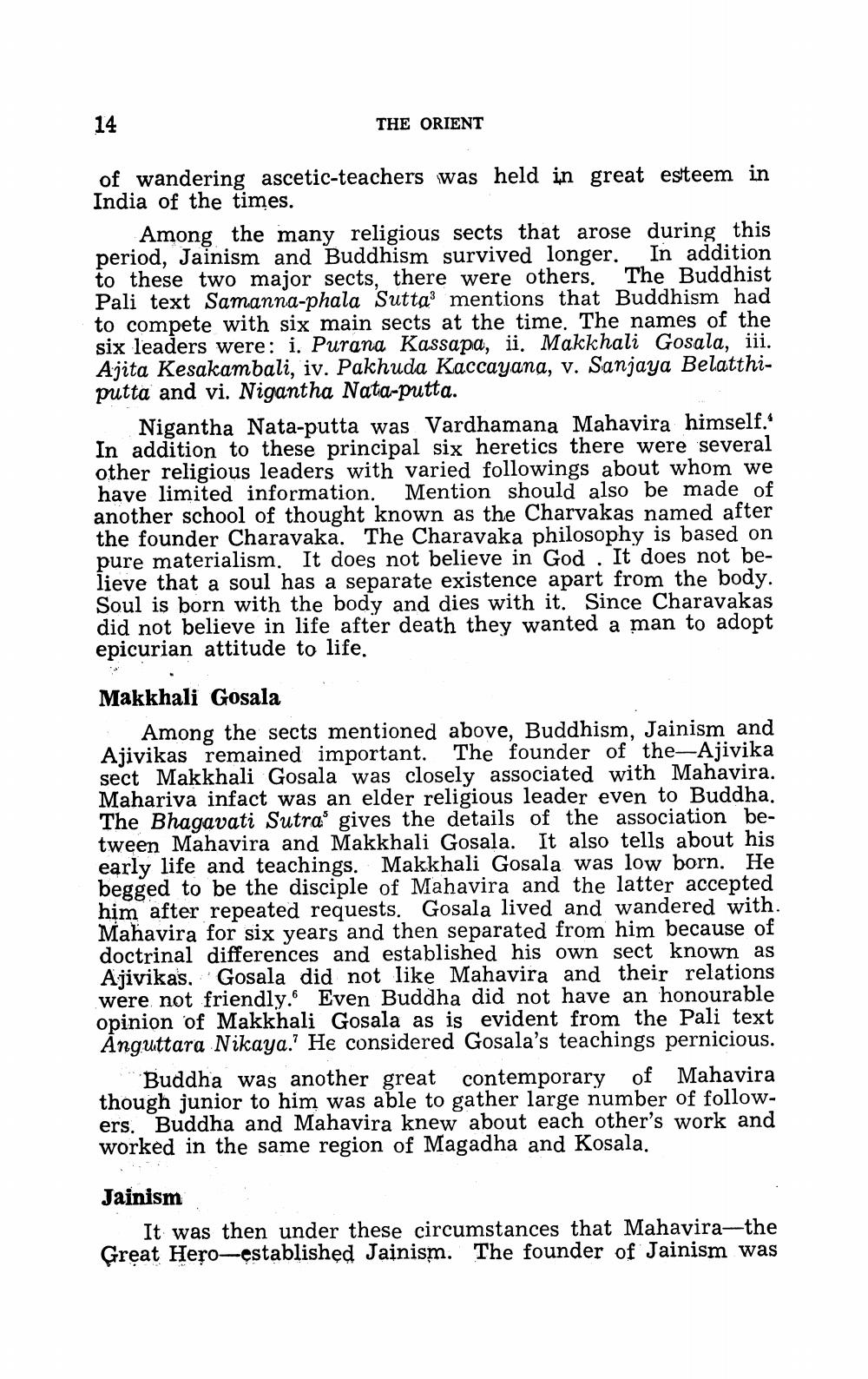________________
14
THE ORIENT
of wandering ascetic-teachers was held in great esteem in India of the times.
Among the many religious sects that arose during this period, Jainism and Buddhism survived longer. In addition to these two major sects, there were others. The Buddhist Pali text Samanna-phala Sutta3 mentions that Buddhism had to compete with six main sects at the time. The names of the six leaders were: i. Purana Kassapa, ii. Makkhali Gosala, iii. Ajita Kesakambali, iv. Pakhuda Kaccayana, v. Sanjaya Belatthiputta and vi. Nigantha Nata-putta.
Nigantha Nata-putta was Vardhamana Mahavira himself." In addition to these principal six heretics there were several other religious leaders with varied followings about whom we have limited information. Mention should also be made of another school of thought known as the Charvakas named after the founder Charavaka. The Charavaka philosophy is based on pure materialism. It does not believe in God. It does not believe that a soul has a separate existence apart from the body. Soul is born with the body and dies with it. Since Charavakas did not believe in life after death they wanted a man to adopt epicurian attitude to life.
Makkhali Gosala
Among the sects mentioned above, Buddhism, Jainism and Ajivikas remained important. The founder of the Ajivika sect Makkhali Gosala was closely associated with Mahavira. Mahariva infact was an elder religious leader even to Buddha. The Bhagavati Sutra gives the details of the association between Mahavira and Makkhali Gosala. It also tells about his early life and teachings. Makkhali Gosala was low born. He begged to be the disciple of Mahavira and the latter accepted him after repeated requests. Gosala lived and wandered with. Mahavira for six years and then separated from him because of doctrinal differences and established his own sect known as Ajivikas. Gosala did not like Mahavira and their relations were not friendly. Even Buddha did not have an honourable opinion of Makkhali Gosala as is evident from the Pali text Anguttara Nikaya.' He considered Gosala's teachings pernicious.
Buddha was another great contemporary of Mahavira though junior to him was able to gather large number of followers. Buddha and Mahavira knew about each other's work and worked in the same region of Magadha and Kosala.
Jainism
It was then under these circumstances that Mahavira-the Great Hero-established Jainism. The founder of Jainism was




